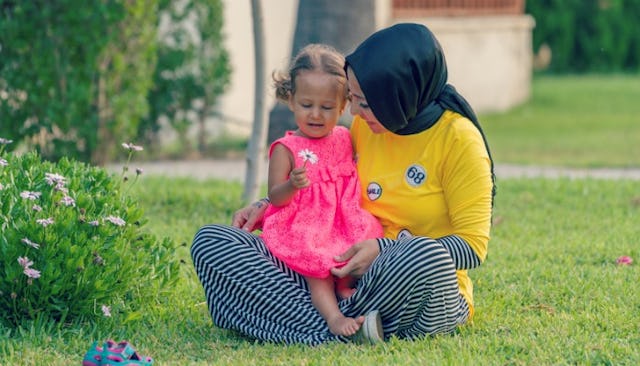Soothing Our American Daughter’s Fears About Her Persian American Mother

Last night, the woman I married 32 years ago walked into the living room where I was preparing my American literature discussion for the following day on Henry James’s “The Art of Fiction” — a discussion about all that’s democratic and true, and thus pleasing, in novels and life.
“I want you to hear me out and not get alarmed,” my wife started. “Mom was exactly the age I am now when she and Dad had to leave everything behind and move to this country. I hear that in New Zealand, you can hike anywhere without fear of being accosted by snakes or other predatory beings.”
Of course, she knows that snakes aren’t predators. Still, it’s the danger here, the taunts of “Sand N*gger,” she wants to flee. The danger that a woman whose entire family escaped an oppressive regime knows. The intimate knowledge of the harm inflicted on some whom she loved by a government that might have imprisoned or killed her family — like they did with so many others who were part of the “intelligentsia” — had they not been allowed into the United States.
My wife is from Iran. She received her green card in the mid-1980s, her full citizenship a few years later. Our children were born here, in the United States, but on the day after the election of Donald J. Trump, our youngest daughter called to ask what this reality meant for “Mommy and her Persian family” — for us.
I tried to tell her that no one was going to be outcast from the country; that no one in our government would try to do that to its full citizens. I felt like I was right in saying so then. I so badly wanted to be.
To have her hearing to obtain her green card, my wife and I drove from Knoxville to Memphis. We had to get her ID photo retaken, so that her ear would be in plain sight. We had to testify under a portrait of then-President Reagan who had cut a deal with the very regime my wife had escaped.
So many people were waiting for naturalization in that office, but one, looking right at me after my wife was called in, said, “We all have it bad here, but no one has it as bad as these poor Iranians.”
Soon after, I joined my wife in the interrogation room. I wanted to take her hand, but that didn’t seem allowed. The very stern, white INS agent looked me up and down for a minute. “So, you live with these people? What is your contribution around the house?” he asked as if surely I was freeloading off my in-laws or just as surely being used by them, or as if this was Alabama, my home state, back in the 1940s or ’50s.
“I cut the grass,” I said. “Sometimes I cook, too, and help out with the dishes. But most of my time is taken up with passing my doctoral exams and writing a dissertation.”
He didn’t want to know what I was studying; he just uh-huh-ed me and said, “You’ll get our decision soon.”
“Soon” took six months, during which time my wife couldn’t accept any job. We had moved into our own apartment by then, living off of my $480 a month graduate stipend in an old Victorian house without adequate heat. When the verdict finally came by post one winter morning, it really wasn’t one. “We need more time to investigate your case,” it read.
I wrote back. As an American, it was my right to write back: “Please, by all means, come to our home and investigate.”
Two weeks later, my wife’s green card arrived, no apology, no note, no welcome to the United States of America.
That was over 30 years ago. Since then, my wife, who earned her master’s degree in counseling psychology, has helped countless individuals adjust to being displaced, even if that displacement is as simple as moving from New York City to our place of residence in upstate South Carolina. She has counseled teens who have eating disorders and/or suffered severe, familial abuse. She has worked with couples seeking to repair or end their marriage. My wife is paid well; she has been a valuable resource for our community, a contributing, productive member of our society.
But now she feels fearful about the direction her adopted country is taking us.
After we talked last night — “I could keep counseling in New Zealand. They mainly speak English, right?” — we watched All In’s Chris Hayes interview an Iranian-American law professor from the University of Georgia, a woman who, as a child in Iran, was taught to shout “Death to America” by those close to her — those who both feared the Iranian regime and wanted to conform to its dictates. Now she teaches in one of the largest law schools in the country, free from the turmoil of that time, her smile radiant. So much like my wife’s.
And like my daughter’s. I don’t want her to have fear or to worry about fleeing her country one day. I don’t want her to be embarrassed about who she is. Last winter, my daughter spent her spring break on a college trip to Turkey.
“Maybe it’s as close as I’ll ever get to Iran,” she said.
I smiled as she said it, her eyes glittering.
I wonder now if in a year or five, we’ll be able to smile at such sentiments at all, or whether we’ll have to keep them, and our other dreams, to ourselves.